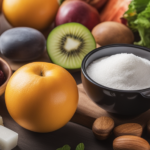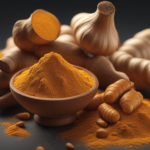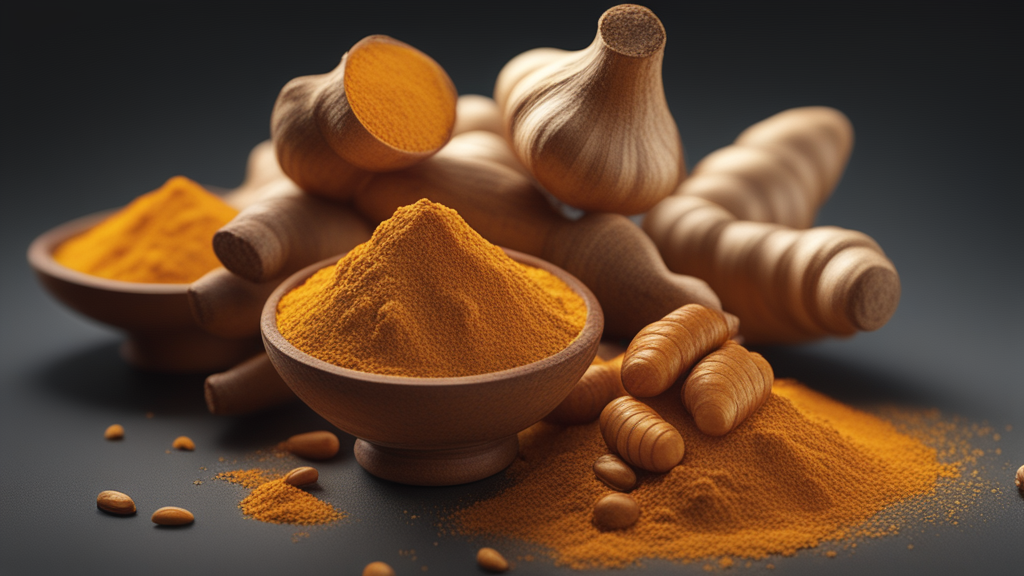In recent years, the rise of herbal teas as natural remedies has gained significant attention, particularly for their ability to support health and well-being. Among their many benefits, some herbal teas have been shown to help stabilize blood sugar levels, making them a useful addition to the diets of people managing conditions like diabetes or prediabetes. In this article, we will explore some of the most effective herbal teas for blood sugar management, including green tea, ginger tea, and other powerful brews.
Why Herbal Teas Can Help Control Blood Sugar
Herbal teas are derived from various plant leaves, roots, seeds, and flowers, many of which contain bioactive compounds that can positively affect glucose metabolism. These compounds work in different ways—some improve insulin sensitivity, while others help reduce sugar absorption or promote better digestion, which can lead to more stable blood sugar levels. Drinking these teas regularly can be an easy and enjoyable way to support overall blood sugar control naturally.
Top Herbal Teas for Blood Sugar Management
Here’s a list of some of the best herbal teas that can help keep blood sugar levels in check.
1. Green Tea
Green tea is widely celebrated for its health benefits, and its ability to support blood sugar regulation is well-documented. Rich in antioxidants, especially a group called catechins, green tea can enhance insulin sensitivity and help regulate blood sugar levels. One of the main catechins in green tea, EGCG (epigallocatechin gallate), has been found to lower blood sugar levels by improving glucose absorption.
How to Use Green Tea for Blood Sugar Control:
Drink 2-3 cups of unsweetened green tea per day, preferably between meals, to help maintain stable blood sugar levels.
2. Ginger Tea
Ginger tea is another powerful herbal tea that offers benefits for blood sugar control. Ginger contains gingerols, active compounds known for their anti-inflammatory and antioxidant properties, which may improve insulin sensitivity. Studies have shown that ginger can lower fasting blood sugar levels and improve HbA1c, a marker of long-term blood sugar control.
How to Use Ginger Tea for Blood Sugar Control:
Steep fresh ginger slices in boiling water for 10-15 minutes. Drink 1-2 cups per day to enjoy its blood sugar-balancing effects.
3. Cinnamon Tea
Cinnamon tea is a fantastic option for those looking to manage their blood sugar naturally. Cinnamon has been extensively studied for its potential to lower blood sugar by increasing insulin sensitivity and slowing down the breakdown of carbohydrates in the digestive tract. This leads to a more gradual release of sugar into the bloodstream, preventing blood sugar spikes.
How to Use Cinnamon Tea for Blood Sugar Control:
Steep a cinnamon stick or 1 teaspoon of cinnamon powder in hot water for 10 minutes. Drink it before or after meals to help regulate post-meal blood sugar levels.
4. Hibiscus Tea
Known for its vibrant red color and tart flavor, hibiscus tea is rich in antioxidants and has been shown to have benefits for heart health and blood sugar control. Hibiscus is believed to help lower insulin resistance and promote healthier blood sugar levels, making it a great choice for people managing diabetes or prediabetes.
How to Use Hibiscus Tea for Blood Sugar Control:
Enjoy a cup of hibiscus tea once or twice daily. It can be served hot or cold, depending on your preference.
5. Turmeric Tea
Turmeric tea is well-known for its anti-inflammatory properties, thanks to curcumin, the active compound in turmeric. Curcumin has been studied for its ability to improve insulin sensitivity and lower blood sugar levels. It also helps reduce inflammation, which can contribute to insulin resistance over time.
How to Use Turmeric Tea for Blood Sugar Control:
Boil a teaspoon of turmeric powder in water for 10 minutes or use fresh turmeric root. Add a pinch of black pepper to enhance curcumin absorption. Drink daily for optimal benefits.
6. Fenugreek Tea
Fenugreek tea is made from fenugreek seeds, which are rich in soluble fiber and have been used in traditional medicine to lower blood sugar levels. Fenugreek helps slow down carbohydrate absorption and improve insulin function. Several studies have shown that fenugreek can reduce fasting blood sugar and improve overall glucose tolerance.
How to Use Fenugreek Tea for Blood Sugar Control:
Soak a tablespoon of fenugreek seeds in water overnight, then boil the water in the morning to make tea. Drink it on an empty stomach to enhance its blood sugar-lowering effects.
7. Dandelion Root Tea
Dandelion root tea is a lesser-known option that can support blood sugar balance. It is packed with inulin, a type of soluble fiber that helps regulate blood sugar levels by slowing down the absorption of glucose. Dandelion root also supports liver function, which plays a key role in glucose metabolism.
How to Use Dandelion Root Tea for Blood Sugar Control:
Steep dried dandelion root in hot water for 10-15 minutes. Drink 1-2 cups daily to help keep blood sugar levels stable.
8. Bitter Melon Tea
Bitter melon tea is made from the fruit of the bitter melon plant, which has been traditionally used to treat diabetes in various cultures. Bitter melon contains compounds that mimic insulin, helping to lower blood sugar levels by promoting glucose uptake in the cells.
How to Use Bitter Melon Tea for Blood Sugar Control:
Boil sliced bitter melon in water to make tea. Drink this once a day, but be mindful that the taste is quite strong and bitter, so you may need to adjust to it over time.
9. Rooibos Tea
Rooibos tea is a naturally caffeine-free herbal tea from South Africa, known for its rich antioxidant content. Research suggests that rooibos may help reduce oxidative stress and inflammation, both of which can contribute to insulin resistance. Some studies have shown that rooibos can lower fasting blood sugar and improve glucose metabolism.
How to Use Rooibos Tea for Blood Sugar Control:
Drink 2-3 cups of rooibos tea daily, either hot or cold, to help stabilize blood sugar levels.
10. Chamomile Tea
Chamomile tea is often used to promote relaxation and sleep, but it also has potential benefits for blood sugar regulation. Chamomile contains compounds that may improve insulin sensitivity and reduce blood sugar levels after meals. Drinking chamomile tea regularly may help prevent complications associated with diabetes.
How to Use Chamomile Tea for Blood Sugar Control:
Enjoy a cup of chamomile tea before bed to not only promote restful sleep but also help maintain balanced blood sugar levels overnight.
The Benefits of Incorporating Herbal Teas into Your Routine
Incorporating herbal teas into your daily routine can be an enjoyable way to support blood sugar balance. Along with a healthy diet and regular physical activity, these teas can provide an extra boost in keeping glucose levels stable and improving overall health. However, it’s important to note that while these teas can be beneficial, they should not replace prescribed medications for diabetes management. Always consult your healthcare provider before making significant changes to your health routine, especially if you are currently on medication for diabetes or other conditions.
Q&A: Frequently Asked Questions
Q1: How often should I drink herbal teas for blood sugar control?
A1: Drinking 1-3 cups per day of any of these herbal teas can help support blood sugar regulation. However, it’s important to listen to your body and consult with a healthcare provider for personalized advice.
Q2: Can I drink more than one type of tea in a day?
A2: Yes, you can combine different teas throughout the day. For example, you might have green tea in the morning, ginger tea in the afternoon, and chamomile tea in the evening. Just ensure you’re not consuming too much caffeine if you’re sensitive to it.
Q3: Are there any side effects of drinking herbal teas?
A3: Most herbal teas are safe when consumed in moderation. However, certain teas like cinnamon and bitter melon can lower blood sugar significantly, so be cautious if you’re also taking diabetes medications to avoid hypoglycemia.
Q4: Can herbal teas replace diabetes medications?
A4: Herbal teas can complement your diabetes management plan, but they should not replace any medications prescribed by your doctor. Always consult with your healthcare provider before making any changes to your treatment plan.
















